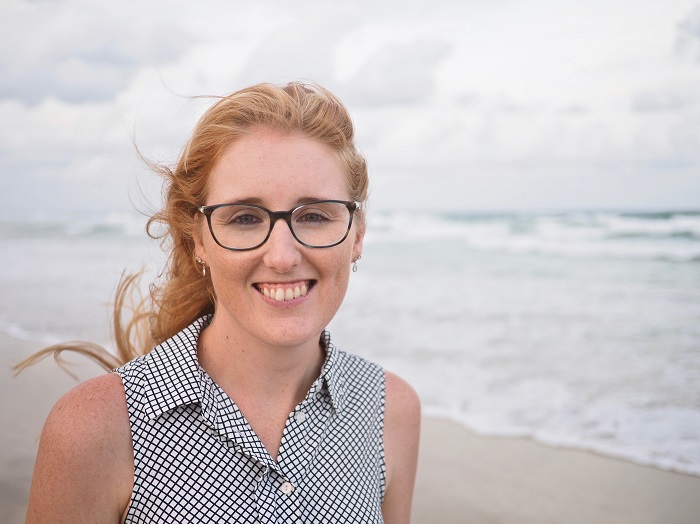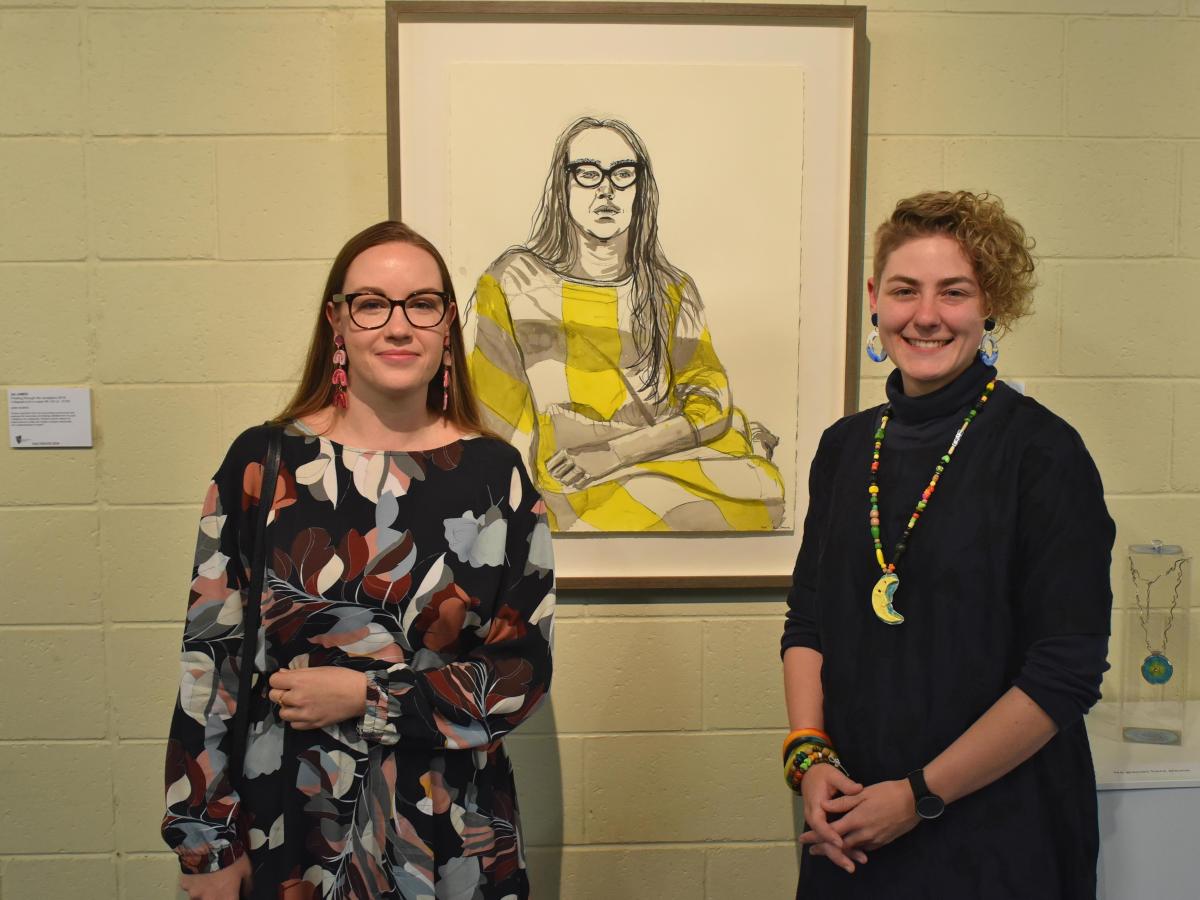Students attending the 2018 CQU Creates Exhibition. Supplied.
Whether it’s taking your creative project to the next level, brushing up on your arts management skills, or publishing a novel you’ve shelved, CQUniversity has carefully crafted courses for prospective students interested in pursuing a career in the arts.
With over 20 locations across Australia and offering the ability to study online, CQUniversity is a flexible study option for students, especially those living regionally, and prides itself on connecting them to their chosen industry.
‘We help the students to realise what industries they need to be aligned with, how to get funding and also help them to identify and gain experience in those areas,’ said Liz Ellison, the lecturer of the Graduate Certificate in Creative and Professional Practice.
The Graduate Certificate is available in either a full-time or a part-time capacity, and is geared towards anyone in a creative field, ranging from arts professionals to performing arts practitioners who wish to gain skills in education, management, curation, tourism or events.
‘Usually students come to us with a project in mind and we help them do it,’ Ellison said ‘So on one hand it’s self-directed because we ask students what a successful project looks like to them and then get them to measure and evaluate it.’
Currently, Ellison’s cohort include a student interested in sustainable fashion working on a bespoke shoe project, a graphic designer, and a regional arts practitioner streamlining a project for her workplace. But the qualification is also aimed at those who want to take the next step in their careers.
‘I have other students who use the Grad Cert to develop a foundational project and then take it into a creative practice research masters or a PhD,’ Ellison said.
Other specialisations offered to students of the Graduate Certificate in Creative and Professional Practice include Arts Management, Arts Social Innovation, Arts and Heritage Tourism and Creative Practice, with many taking up the latter to specialise in their chosen area of expertise.
Find out more about the Masters of Letters and Graduate Certificate
For budding writers, CQUniversity also offers a Masters of Letters, a three-year part-time course giving students the tools to extend their qualifications in creative writing.
‘This can be particularly useful for people who have done previous study in their undergrad degree in creative writing, but it’s also open for people who just maybe want a bit of a change of scene,’ Ellison said.
‘We get a lot of students who have always wanted to write a book but haven’t had that chance to go back and do it and this gives them a really structured way of working through some of those techniques you don’t necessarily get when you’re doing it on your own.’
Writing disciplines focus on, but are not limited to fiction, non-fiction and memoir, although those with backgrounds in journalism or communications have also completed the course.
‘Most of our students look at it as a way for developing a manuscript, whether that’s a novel or a collection of essays or poetry or whatever form that might take, and then look at that as a publication option,’ Ellison said.
‘This year our former alumnus Katherine Healy was shortlisted for the prestigious Peter Porter Poetry Prize, which was a wonderful recognition for her.’

Liz Ellison, Lecturer in Graduate Certificate in Creative and Professional Practice. Supplied.
Industry alignment and career preparation
CQUniversity have streamlined their program so that those enrolled in the Graduate Certificate are able to work on a plan that will align them with the industry.
‘For students studying Arts Management, one of the assessment tasks is about writing a career plan, or funding plan,’ Ellison said. ‘So a big part of that is identifying who the funding bodies in your industry are.
‘We recently redeveloped some of the units and I looked at the national funding guidelines for the arts and thought about the skills that the students will need to really be able to go out and do these projects when they’re seeking funding.
‘A lot of the time it comes down to how you document a really good project and how you identify whether you’ve been successful? How can you measure the value of your project.’
Both the Masters of Letters and the Graduate Certificate in Creative and Professional Practice are developed to help students connect to their chosen industry, with work experience encouraged, although not mandatory.
‘There is the opportunity for industry placement and CQUni is pretty good at supporting students to undertake any sort of work integrated learning that they would like to do,’ Ellison said.
‘It’s not something that’s required, because it’s really hard to expect students to do work for free; so many of our students are part time and they’re doing it alongside work so I would never expect them to do that, but for those that are interested, we do get some really interesting connections.’
For more information on the Masters of Letters and Graduate Certificate in Creative and Professional Practice, please visit CQUniversity.





